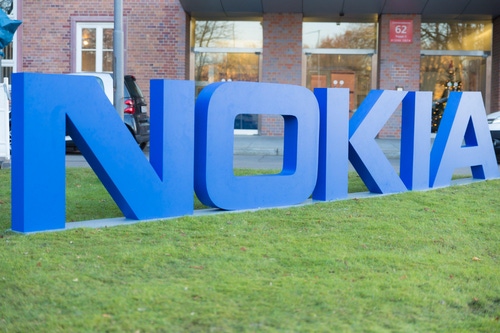Nokia unveils blockchain-based marketplace for AI data and models
The service hopes to enable new use cases through safer data sharing mechanisms

The service hopes to enable new use cases through safer data sharing mechanisms
Nokia has launched the Nokia Data Marketplace, a blockchain-based service that enables enterprises to buy and sell their machine learning models and datasets.
The Data Marketplace is being offered as a ‘white label’ service: telecommunications providers will be able to run their own marketplaces, by monetizing data exchanges between customers or ecosystem participants.
Infrastructure backing the offering is provided by data center giant Equinix, which has presence in more than 240 locations.
“Our customers need secure and trusted access to data for effective business decision making. With Nokia Data Marketplace, enterprises and CSPs can now benefit from richer insights and predictive models to drive digital ways of working and tap into new revenue streams,” Friedrich Trawoeger, Nokia’s vice president of Cloud and Cognitive Services, said.
Data monetization
Nokia said its new service “ensures trusted data exchange and authorization mechanisms.” These mechanisms include the adoption of blockchain tech for security, and support for federated learning – an approach to distributed machine learning that allows participants to work on a common model without exchanging data.
The Finnish telecoms giant said the Data Marketplace complements its Worldwide IoT Network Grid (WING), which offers global IoT connectivity and vertical applications across various markets including healthcare and logistics.
“Nokia Data Marketplace combined with Equinix data centers allows organizations to share data and algorithms globally at more than 240 metro edge locations,” Equinix senior fellow Kaladhar Voruganti said.
"Sharing and processing of data close to its point of creation mitigates issues related to latency, compliance, and network backhaul cost. These neutral and secure edge locations are connected via high-speed and secure networks to data sources spanning across public clouds, private enterprise data centers, and data brokers," he added.
About the Author(s)
You May Also Like


.jpg?width=700&auto=webp&quality=80&disable=upscale)
.jpg?width=700&auto=webp&quality=80&disable=upscale)
.jpg?width=700&auto=webp&quality=80&disable=upscale)
.jpg?width=300&auto=webp&quality=80&disable=upscale)
.jpg?width=300&auto=webp&quality=80&disable=upscale)
.jpg?width=300&auto=webp&quality=80&disable=upscale)
.jpg?width=300&auto=webp&quality=80&disable=upscale)
.jpg?width=300&auto=webp&quality=80&disable=upscale)